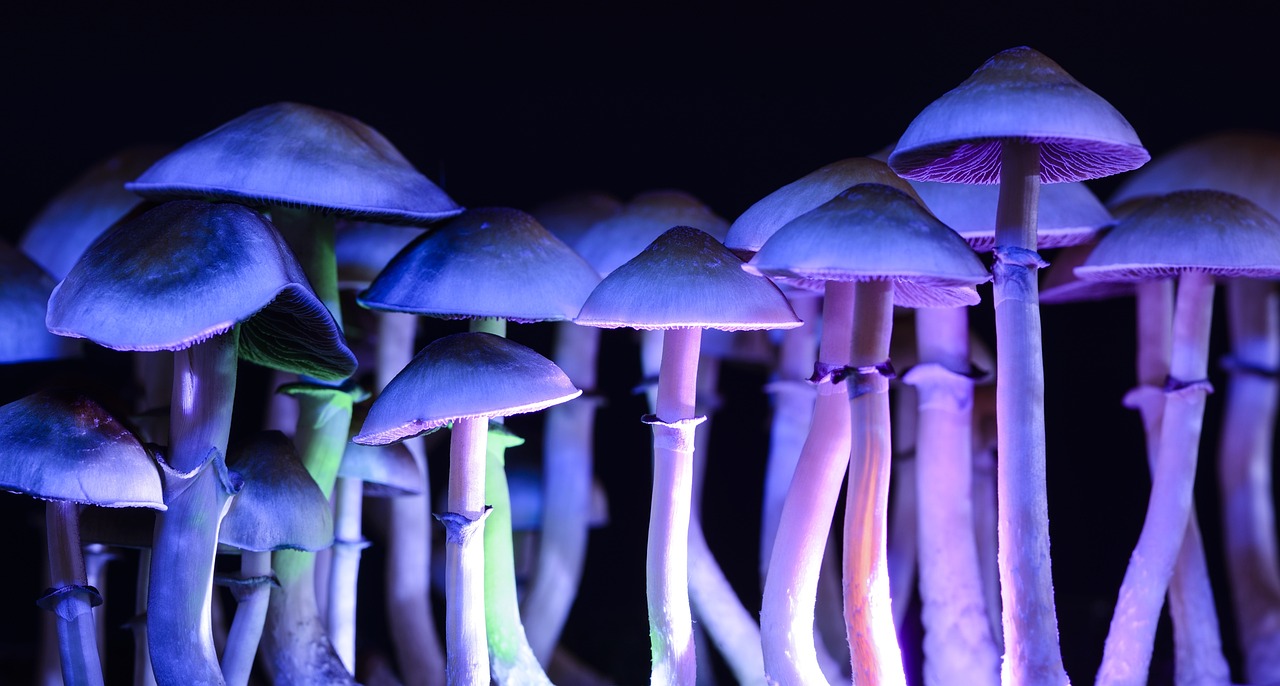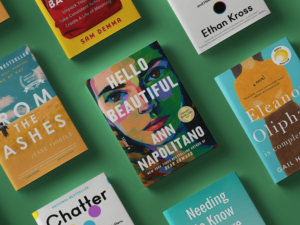Experimentation with legal and recreational drugs is rampant. For some individuals, psilocybin or “magic mushrooms” is the drug of choice for its creativity-boosting and mind-opening effects. However, if someone has ever shown you these mushrooms in fresh or dried form, they don’t look at all appetizing. Why eat this? Yet, many describe euphoric exhilarating nirvanic hallucinations, features which lend themselves to a recreational drug. In 2019, 2% of Canadians were reported to consume hallucinogens, including psilocybin, according to the Canadian Alcohol and Drugs Survey.
Although the production, sale, and possession of psilocybin is currently illegal in Canada with a few exceptions, psychedelic compounds, including psilocybin, have emerged in research as new therapeutic agents in treating mental health disorders such as depression, anxiety, substance use, and post-traumatic stress disorder.

How does psilocybin provide relief to individuals living with mental illness?
To understand psilocybin as a therapeutic, we must examine what it is and where we stumbled across it. Psilocybin, at its simplest, is a compound in many fungi, particularly in species in the genus Psilocybe. When you ingest psilocybin, it is converted into psilocin which activates the serotonin receptors in the brain to produce its mind-altering effects.
The critical characteristic of psilocybin that underlies its use as a therapeutic, is its potential ability to improve brain plasticity, the ability of your nervous system to change through growth and reorganization. What does that mean? Imagine that instead of the weeks and months it takes to learn something proficiently, for example stopping catastrophic thinking, the learning can occur in hours.
This increased capacity for learning and re-organization can gently uncover unconscious memories or encourage the brain away from fixed pathways reinforced by thought patterns and traumatic experiences in individuals with mental illness. However, the caveat is that this learning and re-organization often needs to be guided by psychotherapy in a calming prepared environment. Otherwise, the experience might be stressful or result in a “bad trip,” a situation where prior stresses or situational elements negatively affect the experience of taking psychedelics.

How does this translate into real-life experiences?
In the 2017 Tedtalk “Can Magic Mushrooms Unlock Depression,” Dr. Rosalind Watts describes three main experiences of patients undergoing guided psychedelic therapy: visiting past trauma, having insights about your life, and experiences of immense harmony and unity. Individuals with painful experiences, such as sexual assault, could process these memories cathartically. Dr. Watts gives the example of “John.” During guided psilocybin therapy, he saw a cask that stored intense shame and pain from childhood abuse that he had never fully processed; the experience of opening the cask allowed him to accept his early life experiences.
Patients also describe re-establishing a connection with their senses and nature. The reorganization of thoughts translated to reduced rumination and improved perception of their self, relationships, and life. Ultimately, unravelling these mental knots positively impacted the lives of people with mental illness.

A complicated history
With such success, why have we not explored applications for psilocybin earlier for mental health? From a particular viewpoint, consuming psychedelic substances to improve mental well-being is an ancient practice. However, the criminalization and suppression of the use of psychoactive substances characteristic of modern Western society has created a barrier.
Humans have taken advantage of psychedelic compounds since early civilization, often in the context of spiritual enlightenment and ancient healing practices. For example, a 1000 CE dated ritual bundle belonging to a shaman of the pre-Inca Tiwanaku civilization in southwestern Bolivia held traces of psychotropic compounds, including cocaine metabolites, psilocin, and components of the psychedelic tea known as ayahuasca.
Ancient Greek and Roman societies conducted seasonal rites that included the consumption of a drink called kykeon, which is suggested to contain fungi with LSD-like psychedelic alkaloids. For over 40,000 years, Native American worshippers navigating personal/familial crises have consumed peyote cactus, which contains the psychoactive alkaloid mescaline, as an adjunct to prayer ceremonies.
Even the structured approach of preparing an appropriate environment for consuming psychoactive substances and being guided by an external individual to ensure a safe experience is not novel. Indigenous Amazonian communities emphasize the importance of a designated healer as a guide and the days-weeks needed to prepare for drinking ayahuasca.
In modern society, psilocybin initially emerged in mainstream culture after amateur ethnomycologist R. Gordon Wasson and his partner Valentina P. Wasson, a physician, examined the Mazatec ritual use of psychoactive mushrooms in the Mexican village Huautla de Jimenez. Wasson published a photo essay entitled “Seeking the Magic Mushroom” in 1957 for Life magazine, introducing the term “magic mushroom” to the public. In 1959, Albert Hofmann isolated psilocybin from the mushroom Psilocybe mexicana, and the compound was marketed and sold for use in psychedelic psychotherapy. However, this eventually tapered off due to restrictive drug laws in the 1960s and the international ban on psychedelics initiated by the United Nations Convention in 1971.

Research on psilocybin opens up
Research in this sector returned in the early 2000s and has garnered attention as clinical trials show incredible success for treatment-resistant depression and mental health disorders. In 2023, Australia became the first country to legalize the use of MDMA (methylenedioxymethamphetamine) and psilocybin to be prescribed by psychiatrists for PTSD (post-traumatic stress disorder) and treatment-resistant depression.

What is the current situation in Canada?
In Canada, clinical trials are ongoing, though there is a push for the medicalization of psilocybin and increased access outside of research settings and Canada’s special access program. Since no current approved therapeutic product in Canada contains psilocybin; the safety, efficacy, and quality of products with psilocybin have not been thoroughly assessed by Health Canada. Researchers and individuals interested in the possible results of psilocybin psychotherapy are suggested to look at clinical trials. One key detail is that drugs and therapeutics used in clinical trials must meet Good Manufacturing Practices, a standard used in the pharmaceutical industry, to ensure patient safety and accurate study results.
Health Canada’s Special Access Program allows healthcare practitioners to request access to psilocybin and other drugs that have been approved in other countries or have shown promise in clinical trials but have not yet been authorized in Canada. It is important to note that patients cannot apply for psilocybin access through this program alone. Healthcare practitioners must file requests on behalf of the patient and need to provide evidence to show that a patient with a severe or life-threatening condition has not responded to conventional treatments. Requests are also taken on a case-by-case basis, but there is no guarantee that a request will be approved.

Proceeding with caution
Of course, there are still many potential barriers up ahead. Vigilance and extensive training are needed to train psychotherapists to provide guided therapy. Also, there is limited data on the safety profile of psilocybin response in some populations. Many current trials exclude patients with mental health risks that psychedelics could potentially worsen. For example, psychedelic-assisted therapy is often contraindicated for people with a family history of psychotic disorders or complex psychiatric comorbidities. This is to avoid potentially triggering a first episode of psychosis or precipitating suicidal behaviours.
There may also be the risk of developing Hallucinogen Persisting Perception Disorder when individuals experience lasting or persistent visual hallucinations or perceptual distortions after a previous use of drugs such as psychedelics. Though not entirely understood, this disorder was more often diagnosed in individuals with prior substance misuse.
How will public perception and stigma affect mental health patients? What are the impacts on other members of society? It is essential to consider the commodification of psychedelics and how it may impact Indigenous communities who have been using these psychoactive compounds in careful, sacred practices outside of the market economy for millennia.
Ultimately, the resurgence of research and interest in psilocybin is immensely hopeful and may present a more humane, attentive direction during our present-day mental health crisis. In a lesson from antiquity, we may have had the answers all along in the form of ancient tools of enlightenment.
Eli’s Place will be a rural, residential treatment program for young adults with serious mental illness. To learn more about our mission and our proven-effective model click here.

Carmen Li | Eli’s Place Peer Advisor
My name is Carmen; nice to meet you! I am currently working as a graduate student in oral immunotherapy clinical trials for children with food allergies. You can usually find me at SickKids Hospital. In my spare time, I enjoy trying new recipes and rereading The Sandman by Neil Gaiman.




